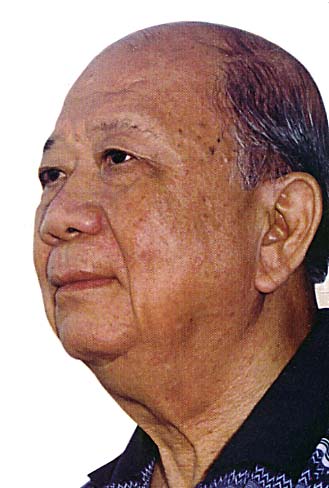History distorted

Our history teachers used to tell us, we must never judge historical events and individuals with our existing standards. Such events and individuals were by-products under a specific historical environment, and any evaluation of these events and people must be made under the condition such historical backgrounds are conscientiously taken into consideration.
Lim Mun Fah, Sin Chew
Over the past two days I have been thinking very hard over one question: How should I present my commentaries on historical events and historical personalities?
No doubt the Communist Party of Malaya (CPM) has become history now. So has its secretary-general Chin Peng. But even with the demise of the CPM, controversies over its historical status and its former leader remain rife.
I understand this issue is not only controversial, but can be extremely sensitive.
While we call ourselves a democratic country, the moment any issue pertaining to communism, race and religion is mentioned, we will find ourselves surrounded by an intangible wall, a truly impenetrable restricted zone. And because of that, it is hard for historical records and consensus to achieve full objectivity, justice and rationality.
Historians tell us the most fundamental prerequisites for writing a history book or researching history is to be objective, fair and just. However, people holding very different political views may have very different interpretations of justice and objectivity.
Our history teachers used to tell us, we must never judge historical events and individuals with our existing standards. Such events and individuals were by-products under a specific historical environment, and any evaluation of these events and people must be made under the condition such historical backgrounds are conscientiously taken into consideration.
Since there is complexity with historical events and people, it is therefore essential that our data must be comprehensive and non-selective lest we deviate from the criteria of objectivity and fairness.
What our teachers told us are merely principles; in reality, which among the countless illustrations of historical events and individuals actually meet such benchmarks?
Take the CPM case for instance, the official stance is very straightforward, that CPM started the chaos and war and killed many security personnel and civilians.
But some others see CPM as fighting for the country’s independence and sovereignty, firstly against the Japanese imperial army, then assisting in flushing out the colonial government to complete the country’s nation-building process.
Such polarized views do carry some elements of truth on either side, but also parts which have been severely distorted. But because of their differing stands, they have made two sets of very contradictory conclusions on CPM’s positive impact on the country’s historical developments, or impediment and destruction it has wrought on our social progress.
In a similar manner, historical records on Chin Peng have been authored differentially based on the commentators’ political stand and perception. Those thinking positively of him will exalt him as a national hero while those denying him call him a despicable traitor.
Such a phenomenon has been attributed to the monopoly by the people commissioned to author history books, as they only pen down the history along their thinking line, making simple but dogmatic conclusions on historical events and personalities.
Because of that, historical events have become so ambiguous and facts are either buried beneath the ruins of history or intentionally distorted. In a similar manner, historical personalities have also been completely overhauled; either sanctified as saints or demonised as unforgivable villains. Such lopsided historical accounts are omnipresent among our history textbooks and other history books available in the market.

